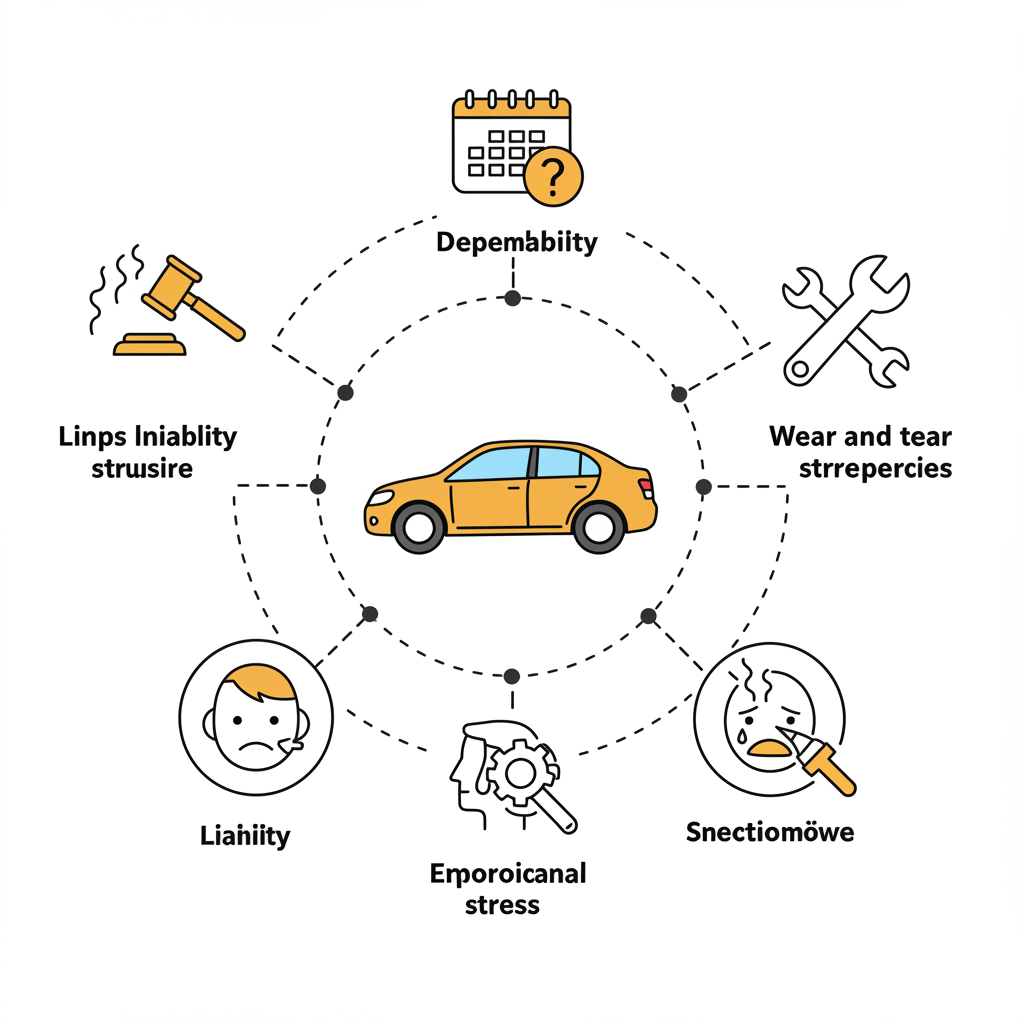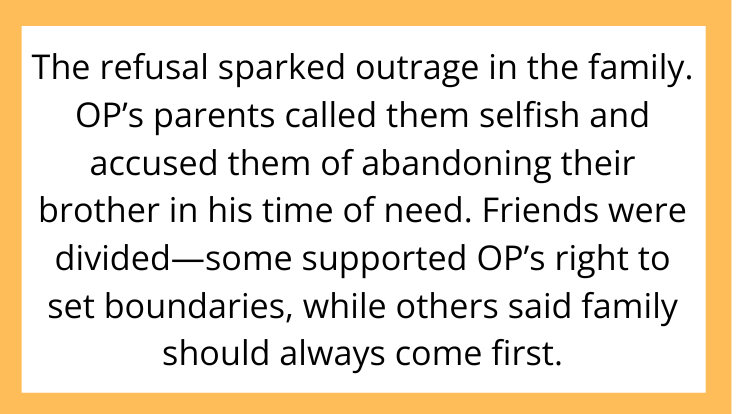AITAH for Not Wanting to Lend My Car to My Brother Even Though He’s Struggling Financially?
When someone close to you is going through a hard time, it’s natural to want to help. But what happens when helping means compromising your own comfort, finances, or sense of security?
A recent post on r/AITAH raised this exact question. The original poster (OP) shared that their brother had recently lost his job and couldn’t afford car repairs. He asked to borrow OP’s car for “a few weeks,” promising to take care of it. But OP declined, explaining that they rely on the car for work, errands, and emergencies.
The refusal sparked outrage in the family. OP’s parents called them selfish and accused them of abandoning their brother in his time of need. Friends were divided—some supported OP’s right to set boundaries, while others said family should always come first.
So, does protecting your own resources make you heartless, or is it a reasonable boundary? Let’s explore this dilemma in depth.
The Scenario: Lending, Guilt, and Obligation

OP explained that their car isn’t a luxury—it’s an essential part of daily life. Even when they weren’t using it for commuting, they needed it for groceries, appointments, and unexpected needs.
The brother insisted he would be careful and only borrow it occasionally. But OP worried about insurance, wear and tear, and the very real possibility that something could go wrong.
When OP said no, their brother was furious. He accused OP of caring more about “a piece of metal” than his ability to get back on his feet. The rest of the family piled on with guilt trips about loyalty, compassion, and sacrifice.
Why Lending a Car Is a Bigger Deal Than Many Think

Some people see lending a car as no different from lending a kitchen appliance or a few bucks. But in reality, it can be much more complicated:
-
Liability: If your sibling gets into an accident, your insurance could be affected—or you could be on the hook for damages.
-
Dependability: If you suddenly need your vehicle, you might not have access.
-
Wear and Tear: Even careful drivers add mileage and reduce the life of the car.
-
Emotional Stress: Worrying about whether your car is safe can add significant anxiety.
For many, these aren’t trivial concerns—they’re valid, practical reasons to hesitate.
Balancing Compassion and Self-Preservation

Saying no doesn’t always mean you don’t care. Sometimes it means you’re honest about what you can realistically give. Here are some ways to balance empathy with protecting your own needs:
-
Offer alternatives: Help your sibling research public transit, rideshare options, or car rental assistance programs.
-
Set clear limits: If you do decide to lend the car occasionally, create written agreements about when and how it will be used.
-
Communicate openly: Explain your concerns without judgment or condescension.
-
Be consistent: Boundaries are easier to respect if you don’t waver under pressure.
These approaches show you’re willing to help within your means, even if it’s not exactly the way others want.
Why Family Pressure Feels So Overwhelming

One of the hardest parts of OP’s story is the backlash from family. Many cultures and households expect unconditional support, even at personal cost. But it’s okay to ask yourself:
-
Will lending this car create long-term stress or resentment?
-
Are there other ways to be supportive?
-
Is this expectation reasonable?
Sometimes, family guilt is less about what you’ve done and more about what people believe you should do. Recognizing this can help you stand firm in your decision.
What Reddit Had to Say

The AITAH community was sharply divided. Many people empathized with OP’s brother, arguing that tough times require extra generosity. Others were adamant that OP had every right to protect their vehicle and their peace of mind.
Overall, the consensus leaned toward OP not being the bad person for refusing but highlighted the importance of empathy and communication to avoid unnecessary fallout.
Final Thoughts: Boundaries Don’t Make You Selfish

At the end of the day, lending a car is a big ask. You can care deeply about someone and still decide that the risk is too high. Healthy relationships rely on honesty, not guilt-driven compliance.
If you’re in a similar situation, remember:
-
You are not obligated to say yes to every request.
-
Your property and peace of mind matter.
-
You can be supportive in other ways.



